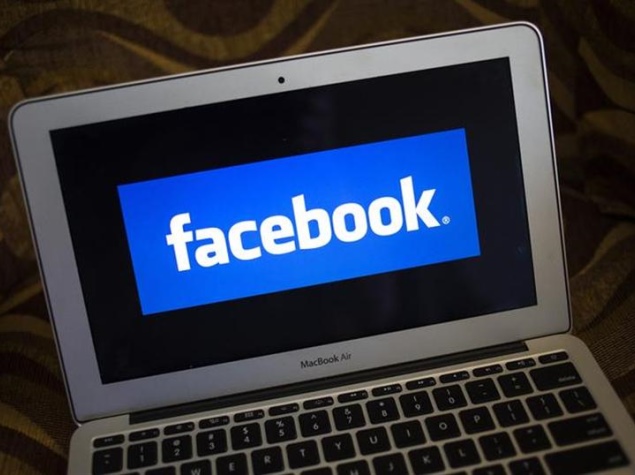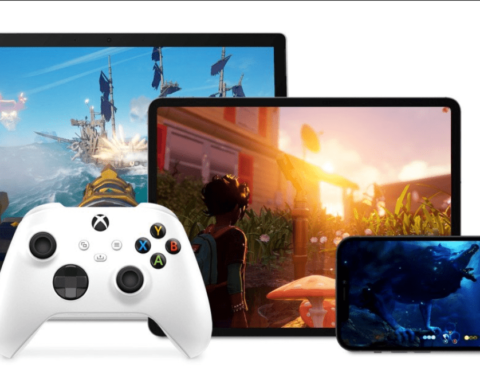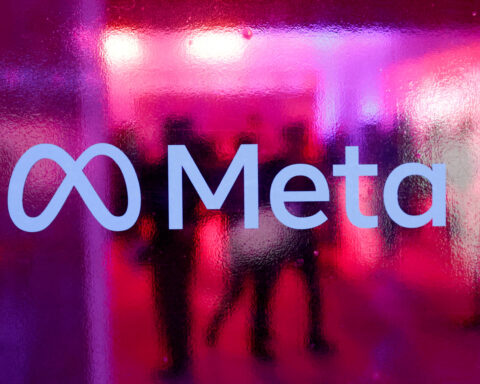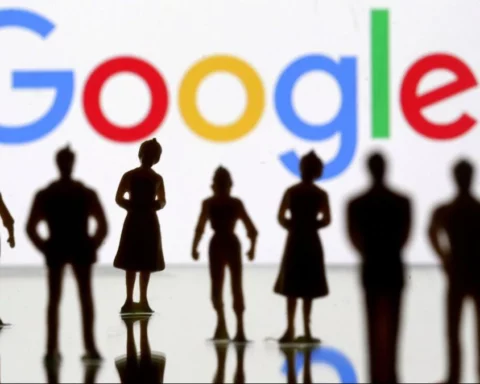Facebook profits tripled to $642 million in the first quarter on a 72-percent surge in revenues helped by strong gains in mobile users and mobile advertising.
Demonstrating that it is successfully following the shift from personal computers to mobile devices – which a year ago appeared to pose a huge challenge for the company – Facebook said Wednesday that advertising revenues were up 82 percent to $2.27 billion from a year ago.
Of that, earnings from mobile ads comprised 59 percent of the total. One year ago, mobile ads were less than one-third, and three months ago they were 53 percent.
After announcing $21 billion in ambitious acquisitions during the quarter, Facebook chief executive Mark Zuckerberg said the results show the company nevertheless is “staying focused on execution” and carefully improving the company’s core business.
“These results show Facebook’s business is strong and growing, and we’re in great position to continue making progress towards our mission.”
Total revenue, which also include payments and fees, was up 72 percent year-on-year to $2.5 billion. Helped by a strong jump in operating margins, net profits rose from $219 million to $642 million.
Earnings per share came in at 25 cents; operating earnings per share jumped to 34 cents, handily beating the 24 cents expected by analysts.
Facebook shares, which had surged in the days ahead of the report but eased back in regular trade Wednesday, were up 3.7 percent in after-hours trade at $63.65.
‘Best mobile ad product’
Facebook users continued to increase and shift over to mobile devices, underscoring the need for the company to grow its revenue there.
Total daily active users were up 21 percent from a year ago to 802 million, and of them mobile users totaled 609 million, a year-on-year gain of 43 percent.
Monthly active users meanwhile rose to 1.28 billion, one billion of them on mobile.
Zuckerberg said in a phone briefing with analysts that the company is focused on developing new apps to help users share different content in different ways.
That includes over WhatsApp, the smartphone messaging service Facebook is paying $19 billion for.
The core Facebook app “has become the central sharing infrastructure for the world.”
For WhatsApp, Instagram, and Messenger, “the current priority is growth,” he said. “Monetization isn’t our near-term priority here.”
Another area of focus is mobile games as a Facebook platform for advertising, and Zuckerberg promised more news on this in the near future.
Sheryl Sandberg, Facebook’s chief operating officer, said that the company is proving itself as a better vehicle for advertisers than traditional outlets, including newspaper ad inserts.
“We continue to believe that this is because Facebook has the best mobile ad product in the market,” she said.
And while the best earnings on mobile ads are in the United States and Canada, she said European advertisers are increasingly recognizing its importance as a mainstream path for reaching customers.
Of total revenues in the first quarter, $1.18 billion came in the US and Canada, and $700 million from Europe.
“As more marketers use our targeting tools, our ads become more relevant for our users, and drive even better results for marketers,” said Sandberg.
With the deals still not fully completed, the company said little about plans for the new acquisitions – WhatsApp and virtual reality headset developer Oculus – the latter which Facebook is paying $2 billion for.
But with 500 million active users, WhatsApp is expected to help draw some of the types of users that Facebook has lost to Twitter.






